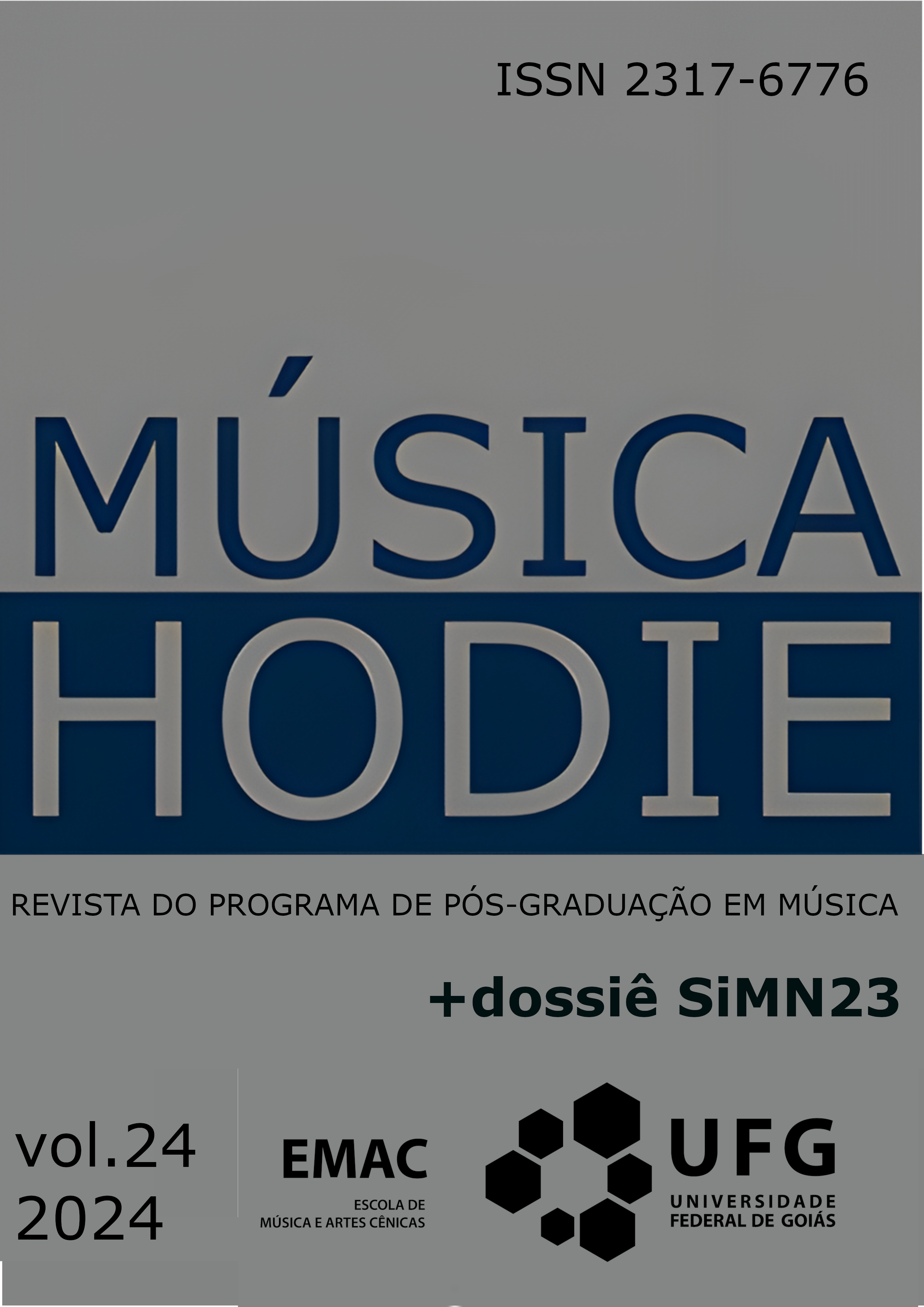AMI: Interface Algorítmica de Música
DOI:
https://doi.org/10.5216/mh.v24.78922Palavras-chave:
música algorítmica, Max for Live, classificação de sequências, composição assistida por computadorResumo
Resumo: Na América Latina, a prática da composição algorítmica tem representantes famosos como o argentino Horacio Vaggione ou o mexicano Julio Estrada. No entanto, não há muita história de software ou ferramentas de computador criadas para esse fim. AMI (interface de música algorítmica) é uma ferramenta desenvolvida dentro do ambiente Max for Live que permite não apenas gerar listas de dados simbólicos de forma algorítmica, mas também classificar essas sequências para obter uma lista de relações ou similaridades que o compositor pode usar como sugestão para a encadeamento de partes musicais.
Downloads
Downloads
Publicado
Versões
- 2024-10-24 (2)
- 2024-09-13 (1)















